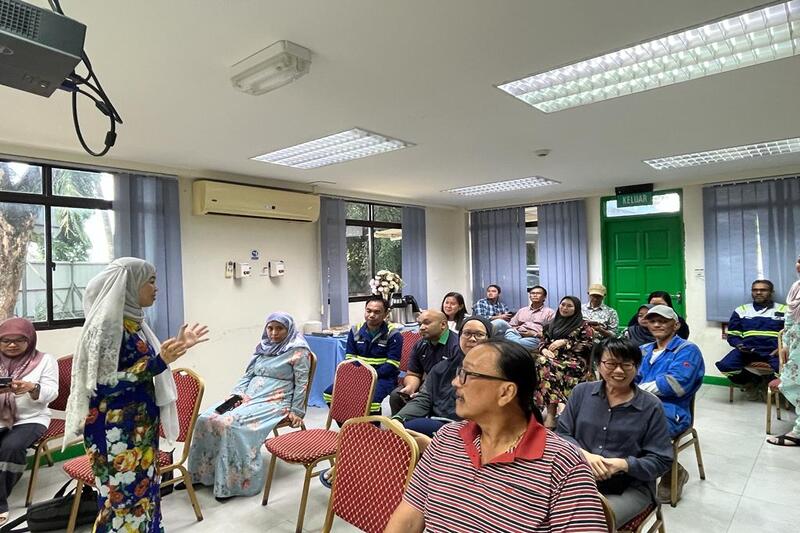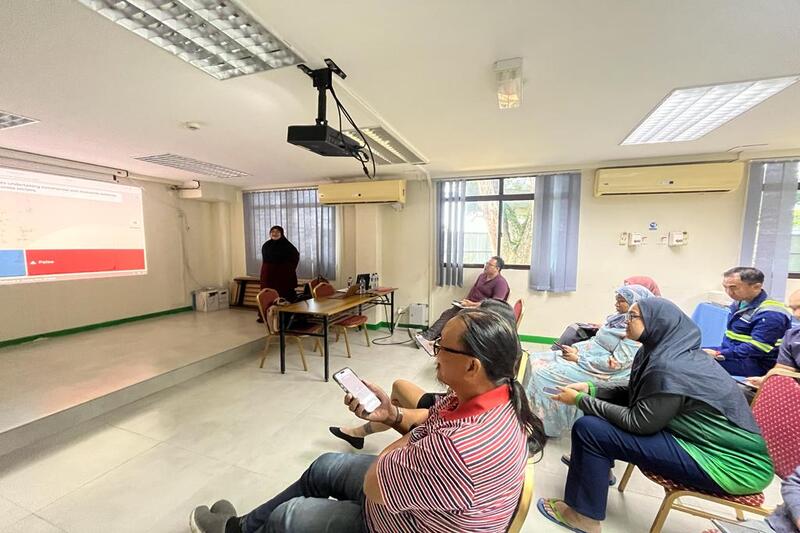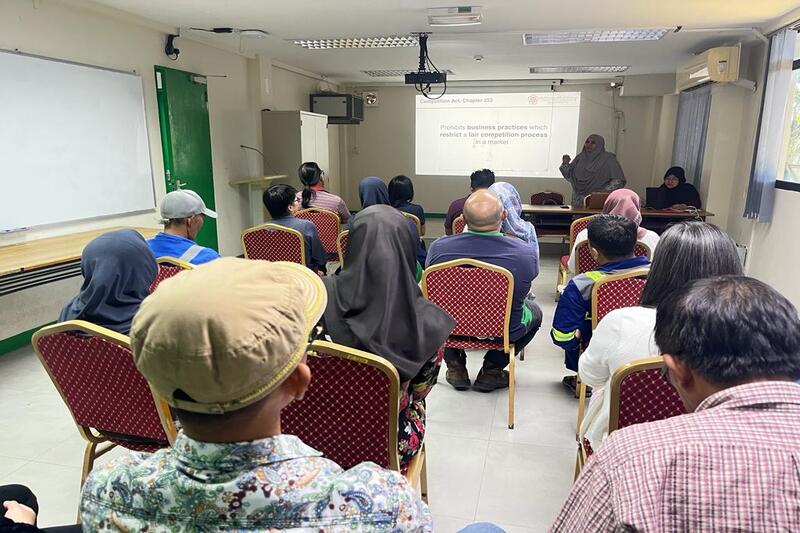The Competition Commission Brunei Darussalam (CCBD) through its Executive Secretariat conducted an advocacy session on Competition Act, Chapter 253 to a cement manufacturing company last Tuesday.
During the opening, the Acting Head of Executive Secretariat of CCBD acknowledged the company’s effort in taking proactive steps to create awareness among the key employees in creating a competition compliance culture.
The Executive Secretariat of CCBD began the briefing by underlining the importance of the law in promoting and protecting competition in the market to enhance economic efficiency and to uphold consumer welfare.
The law is intended to build healthy competition culture among businesses, giving rise to the growth of private sector and ultimately contributing to the achievement of Wawasan 2035. The competitive pressure commonly will incentivise businesses to strategise more cost-efficient ways of production, thereby offering more attractive prices to consumers. In addition, competition will also stimulate innovation among businesses, leading to more choices and higher quality of goods and services offered to consumers. Given the manifold advantages that ensue from a fair and healthy competition process, not only will the welfares of consumers, businesses including Micro, Small and Medium Enterprises, and government be significantly enhanced, it also creates an opportunity for local businesses to broaden their presence in the international market.
The Competition Act prohibits three anti-competitive business conducts, which are Section 11: Anti-Competitive Agreements, Section 21: Abuse of Dominant Position and Section 23: Anti-Competitive Mergers. Section 11 on Anti-Competitive Agreements, or also known as cartels, has entered into force since beginning of January 2020, and prohibits businesses from engaging in written or oral agreements to fix price, share market, limit supply and rig bids, whether expressed or implied.
Businesses sharing commercially sensitive information such as profit margin, costs and future prices can also be caught under the Act, even in the absence of agreements between the said businesses, as doing so may potentially facilitate business collusion.
The session discussed about the second key prohibition of the Act, namely Abuse of Dominant Position. This prohibition refers to businesses abusing a dominant position it holds in a particular market. It was highlighted that dominant businesses can help in achieving economic growth but it should also act responsibly and refrain from doing any abusive conducts, including imposing predatory pricing to the disadvantage to its competitors, refusal to supply without any objective justification, and engaging in exclusive dealing, with the intention to drive out competitors in the market. The advocacy session ended with an interactive dialogue and quiz.
The CCBD welcomes any queries, request for dialogue or briefing on the Competition Act, which can be directed to the Executive Secretariat of CCBD through email at exec.secretariat@ccbd.gov.bn. For further information, visit CCBD’s website at www.ccbd.gov.bn.



